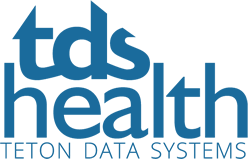Managing Suicidal Risk: A Collaborative Approach

Description
Now in an extensively revised third edition with 65% new material, this is the authoritative presentation of the Collaborative Assessment and Management of Suicidality (CAMS) therapeutic framework. CAMS provides proven tools to help clinicians of any orientation evaluate suicidal risk and develop a suicide-focused treatment plan. In addition to their clinical utility, the procedures used for assessment, stabilization, and treatment of suicidal risk within CAMS can help reduce the risk of malpractice liability. In a convenient large-size format, the book includes the latest version of the Suicide Status Form (SSF-5) plus other valuable reproducible tools, which can be downloaded and printed for repeated use.
New to This Edition
- • Major updates based on ongoing clinical research, including tools and adaptations for additional populations and settings.
- • Increased focus on implementation with adolescents, with a new extended case example.
- • Vital guidance for effectively using CAMS via telehealth.
- • Additional reproducible forms to photocopy or download, including a fillable PDF of the Suicide Status Form, optimized for electronic medical records.
Quotes, Reviews or Testimonials
"No mental health professional is immune to the possibility of working with suicidal clients, and it is imperative that every clinician learn how to deliver expert care in order to save lives. The third edition of this book is a resource that every clinician would benefit from reading and drawing on in times of crisis. It offers a practical, empathic, evidence-based approach that draws on decades of experience and refinements. Jobes has once again provided an extremely valuable work for clinicians everywhere looking for ways to improve the lives of their most high-risk clients."
-- Shireen L. Rizvi, PhD, ABPP, Graduate School of Applied and Professional Psychology, Rutgers, The State University of New Jersey
"Through his remarkable, sustained 40-year career focused on studying and helping people who experience suicidal thoughts and behavior, Jobes has moved the field toward a more patient-centered approach. An emphasis on the patient's perspective and the clinical alliance is reflected in the four pillars of CAMS: empathy, collaboration, honesty, and suicide focus. In the third edition of this book, Jobes walks the reader through the journey of his discoveries, includes useful clinical vignettes, and provides a practical roadmap for incorporating CAMS into any clinical practice."
-- Christine Yu Moutier, MD, Chief Medical Officer, American Foundation for Suicide Prevention
"The third edition of this volume is notable for its readability and instructiveness. Very useful details about how best to implement CAMS with clients are seamlessly merged with empirical data supporting the approach. Many examples of successful (and less optimal) client outcomes, helpful worksheets, frequently asked questions, and innovative applications, including using CAMS via telehealth, contribute to the book's clinical utility. Adoption of the comprehensive CAMS framework will help allay the anxiety that clinicians experience when treating suicidal clients. The wealth of clinical wisdom imparted throughout this book makes it a must-read."
-- Anthony Spirito, PhD, ABPP, Department of Psychiatry and Human Behavior, Alpert Medical School of Brown University
"CAMS is arguably one of the most widely used approaches to clinical care for suicidal patients. Jobes's third edition outlines the latest advances and refinements to this incredibly effective patient-centered approach. User-friendly and accessible, the CAMS model can be readily integrated into any clinician’s therapeutic practice, regardless of background or training. The documentation templates provide an added bonus by helping clinicians ensure they meet standards of care surrounding risk assessment and documentation. Every clinician should pick up a copy of this book and keep it within easy reach."
-- Craig J. Bryan, PsyD, ABPP, Trott Gebhardt Philips Professor of Psychiatry and Behavioral Health, The Ohio State University
Audience
Mental health professionals know the stress and anxiety of working with and treating suicidal clients and strive for the most optimal outcomes possible. Anyone in the Mental Health field or anyone who encounters people with suicidal tendencies will benefit greatly from this title on how best to implement CAMS with their clients. Clinicians, from novices to experts, should use this in their therapeutic practice, regardless of background or training.





















































